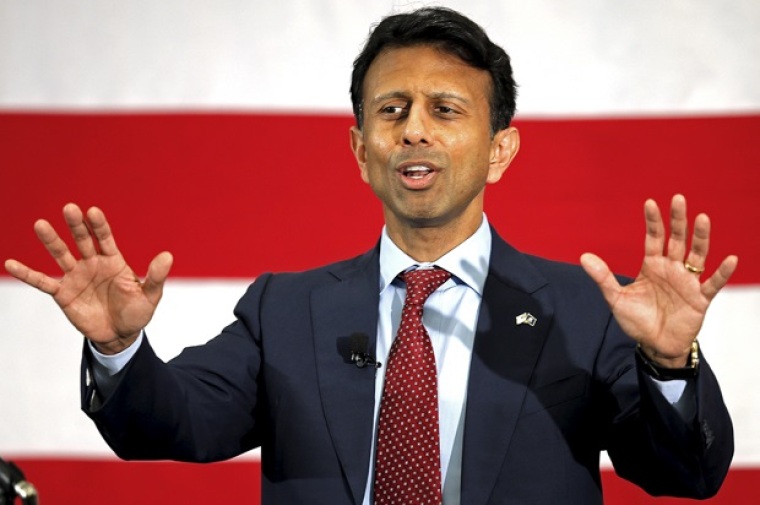Bobby Jindal will not be bullied

NEW YORK CITY (Christian Examiner) – Louisiana Governor Bobby Jindal's editorial opinion in the April 23 issue of The New York Times explained his reasons for not budging on his belief that religious liberty requires businesses be allowed to refuse service based on their beliefs.
Jindal said he would not be bullied, either by corporations or by same-sex marriage activists.
The potential 2016 presidential candidate called down the Indiana and Arkansas governors -- who recently backed off on the Religious Freedom Restoration Act (RFRA) issue in their states -- saying they "quickly cowered amid the shrieks of big business and the radical left," adding that doing so "should alarm us all."
"It was disappointing to see conservative leaders so hastily retreat on legislation that would simply allow for an individual or business to claim a right to free exercise of religion to a court of law," Jindal wrote. "Our country was founded on the principle of religious liberty, enshrined in the Bill of Rights."
Louisiana first adopted a RFRA in 2010, but given the current political climate, the governor wants to strengthen that with the Marriage and Conscience Act written by Rep. Michael Johnson of Bossier City, La., he said.
"The legislation would prohibit the state from denying a person, company or nonprofit group a license, accreditation, employment or contract – or taking other 'adverse action' – based on the person or entity's religious views on the institution of marriage," he explained.
"The bill does not provide a 'right to discriminate,' as critics of such laws say," he added, "but 'merely makes our constitutional freedom so well defined that no judge can miss it.'"
Mainstream news outlets were overwhlemingly negative about Jindal's editorial opinion, and homosexual activists were vocal on social media, making vulgar personal attacks about his character.
A Washington Times article noted Jindal "acknowledged polls that indicate Americans' views on gay marriage are changing, but said he will not change his 'faith-driven view' that marriage is between one man and one woman, 'even if it becomes a minority opinion.'"
"'Those who believe in freedom must stick together," Jindal argued. "If it's not freedom for all, it's not freedom at all. This strategy requires populist social conservatives to ally with the business community on economic matters and corporate titans to side with social conservatives on cultural matters.
"This," Jindal concluded, "is the grand bargain that makes freedom's defense possible."